Writing an immigration appeal letter can feel overwhelming, but it doesn't have to be. With the right guidance, you can craft a clear and compelling argument that resonates with the reviewing authority. This letter serves as a critical opportunity to present your case and provide any additional evidence that could sway their decision in your favor. So, let's dive into the essential elements of an effective immigration appeal letter and how you can structure yours for the best chance at successâkeep reading to learn more!

Applicant Information
The immigration appeal process is crucial for individuals seeking to remain in the United States. Comprehensive applicant information includes the full name, date of birth, and country of origin to verify identity. Case numbers, often assigned by the United States Citizenship and Immigration Services (USCIS), are essential for tracking the status of the application. Additionally, specific dates of application submission and any relevant decisions, such as date of denial or received notices, provide context. Providing evidence such as passport numbers, Social Security numbers, and family connections further enhances the appeal, demonstrating strong ties to the country. Proper documentation can often sway a decision in favor of the appellant.
Case Details
Immigration appeal letters require a thorough understanding of specific case details, including visa types, application outcomes, and the basis for the appeal. Case number (e.g., A123456789) identifies the appeal's specific context, ensuring accurate processing. Date of the unfavorable decision (e.g., January 15, 2023) outlines the timeline of the issue. Immigration application type (e.g., family reunification, employment-based visa) emphasizes the purpose of the initial petition and its significance to the applicant. Ground for appeal (e.g., new evidence, procedural error, or changed circumstances) must be clearly stated to demonstrate the merit of the appeal. Relevant regulations (e.g., Section 245 of the Immigration and Nationality Act) provide legal backing for the request, while supporting documentation (e.g., affidavits, financial statements, or medical records) strengthens the case's validity.
Grounds for Appeal
An immigration appeal can be pursued when an application for residency, refugee status, or other immigration benefits has been denied. Common grounds for appeal include errors in law or procedure, misinterpretation of evidence, and changes in circumstances impacting eligibility. The appeals process, often governed by agencies like the United States Citizenship and Immigration Services (USCIS) or the UK's Home Office, typically requires specific forms such as the I-290B for motions to reopen or reconsider in the U.S. or the Notice of Appeal in the UK. It is essential to provide detailed documentation, including any new evidence, witness statements, and relevant legal precedents, to support the argument. Each jurisdiction may have strict deadlines for filing appeals, often ranging from 30 to 90 days after the decision, emphasizing the need for prompt action to ensure rights are preserved in immigration matters.
Supporting Evidence
The immigration appeal process requires comprehensive documentation to substantiate claims, including critical supporting evidence such as affidavits, photographs, and financial records. Affidavits provide firsthand accounts from individuals detailing personal relationships or circumstances, often carrying significant weight in family-based cases. Photographs serve as visual proof of shared experiences, showcasing moments such as family gatherings at significant locations like parks or celebrations. Financial records, including tax returns or bank statements, demonstrate the economic stability or support provided, which can be pivotal in proving the legitimacy of claims. Collectively, these documents help to construct a compelling narrative that reinforces the validity of the appeal, influencing the decision of immigration authorities.
Conclusion and Request for Reconsideration
In the immigration appeal process, presenting a strong conclusion is crucial for swaying the reviewing authority. A well-crafted conclusion should succinctly summarize the compelling reasons and evidence presented throughout the appeal. Factors such as family reunification, contributions to community (e.g., employment roles in local businesses), and adherence to legal requirements are pivotal. Citing specific statistics, like the success rate of similar appeals and referencing relevant immigration laws, adds weight to the argument. A respectful request for reconsideration should encapsulate the applicant's situation, emphasizing any new material evidence or mitigating circumstances that were previously overlooked, which could influence the final decision. Such an approach fosters a constructive dialogue with immigration officials regarding the application status.

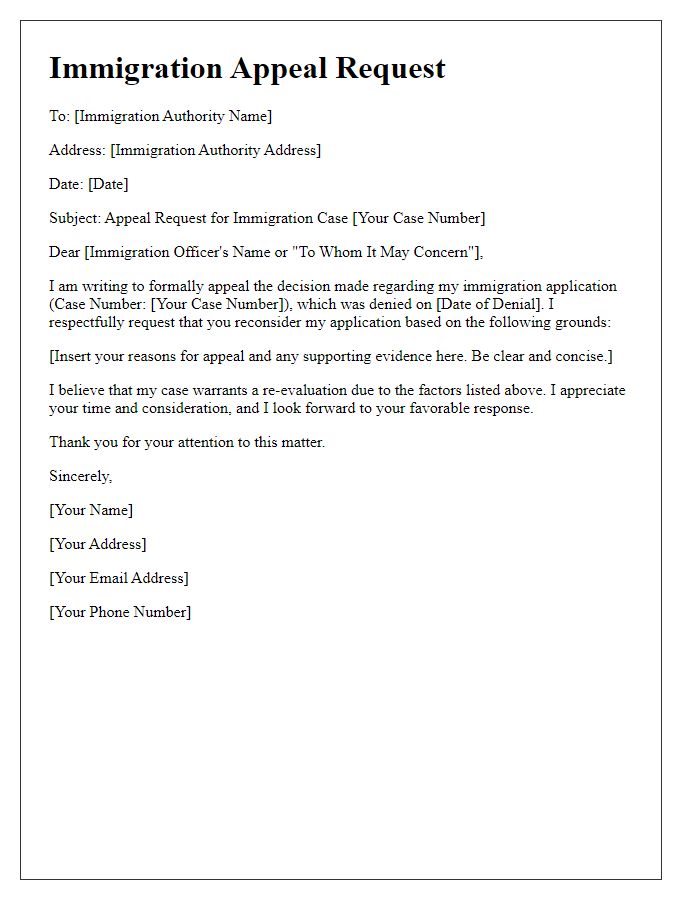
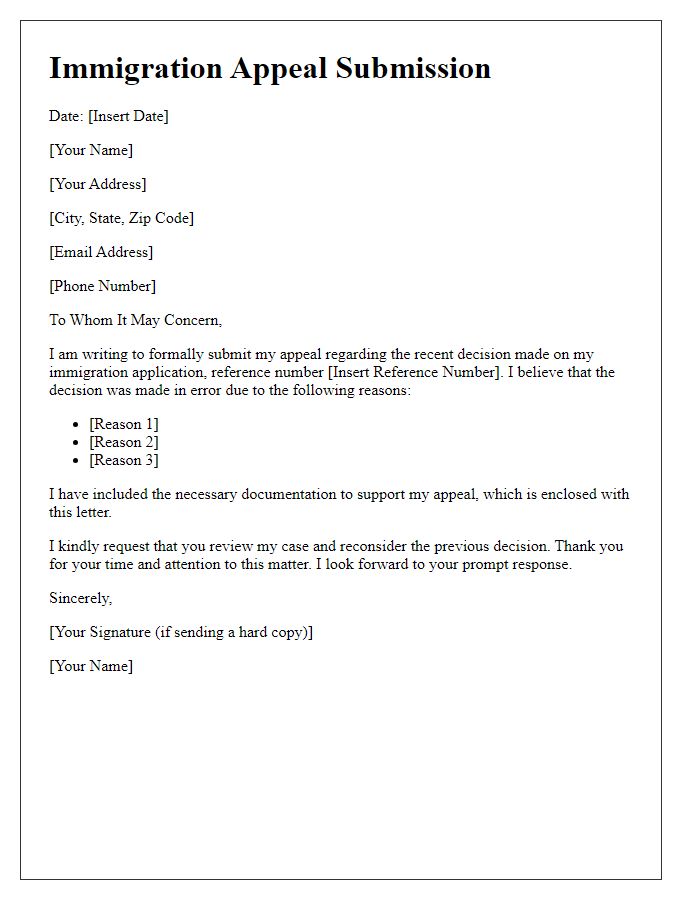
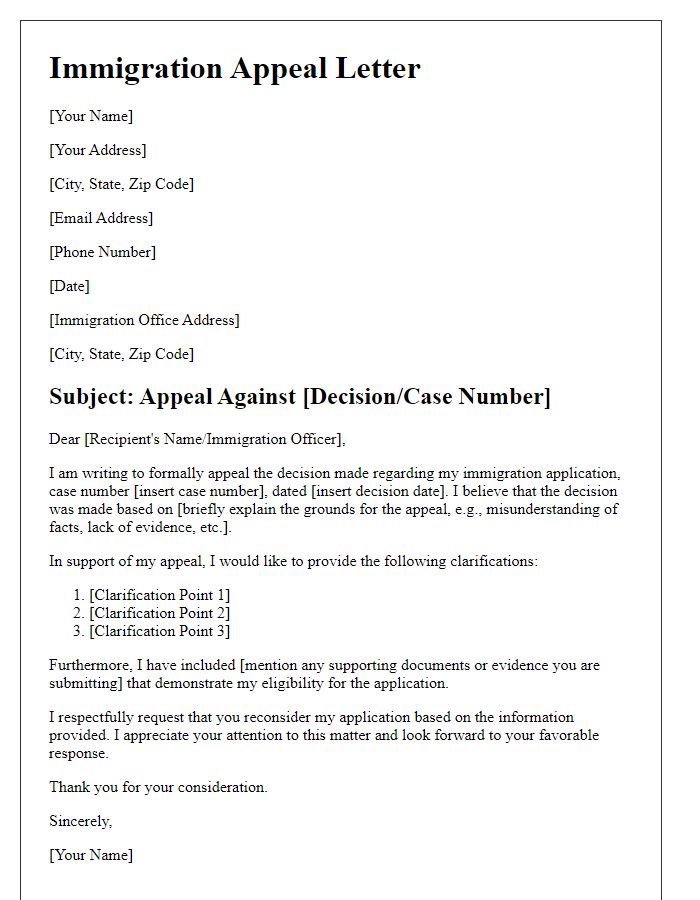
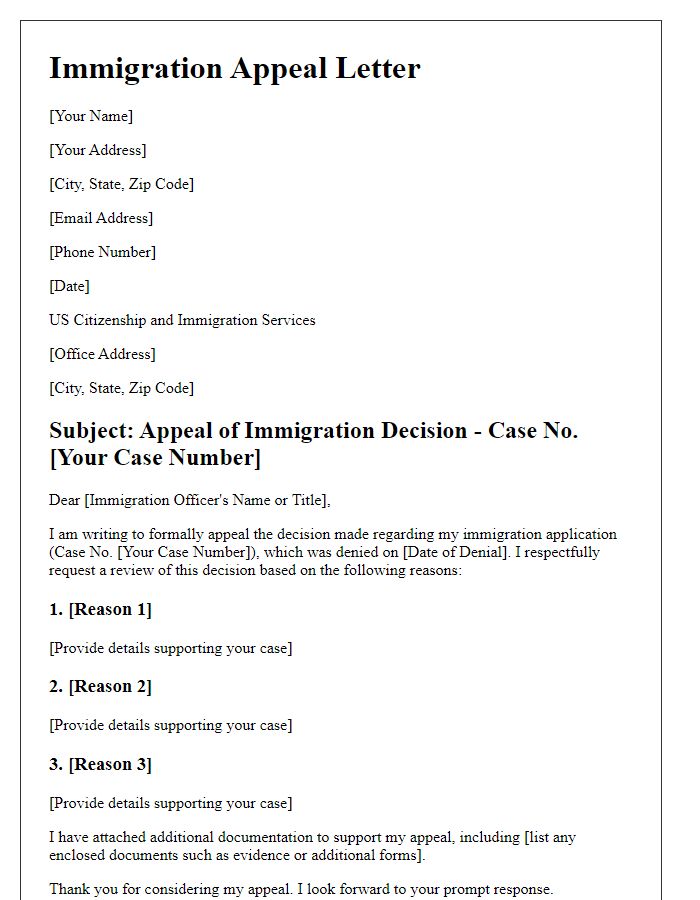
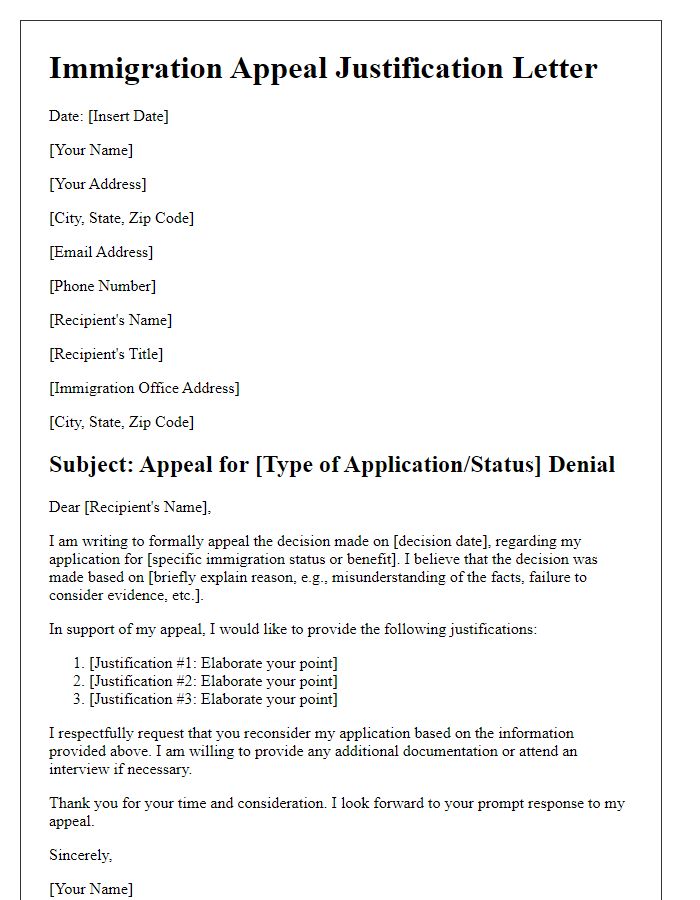
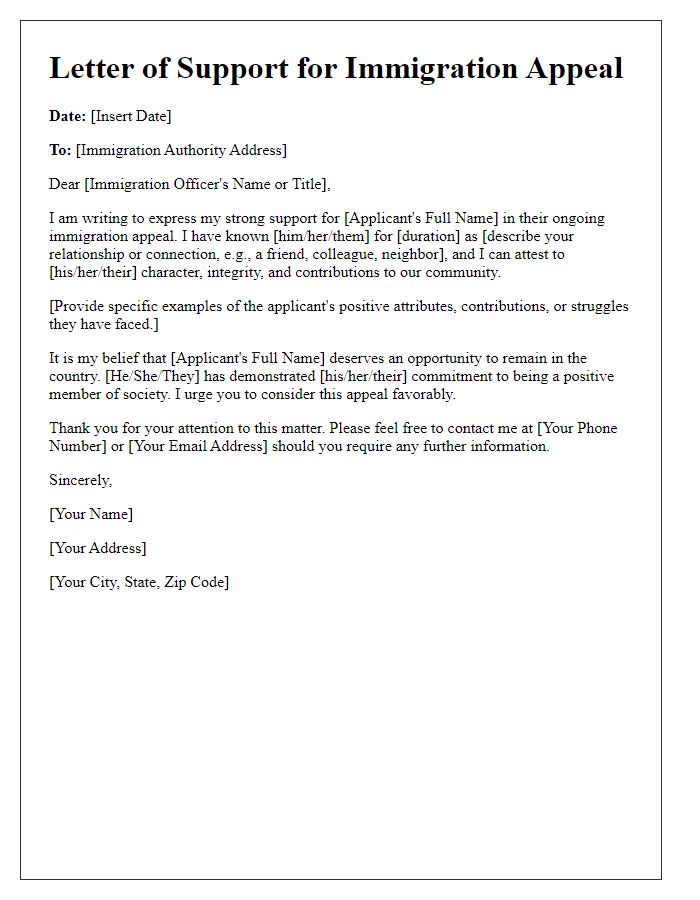
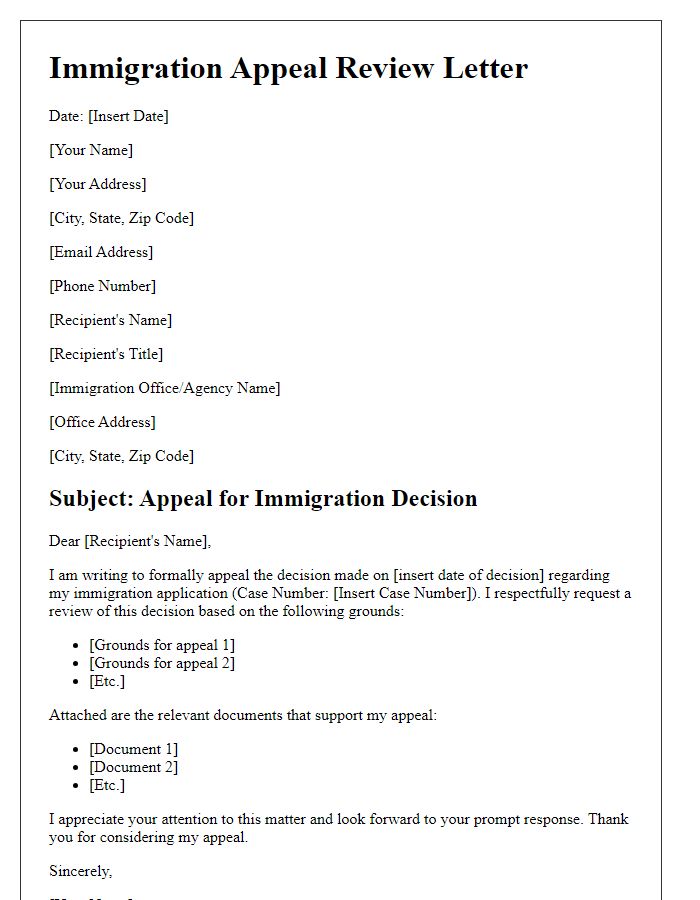
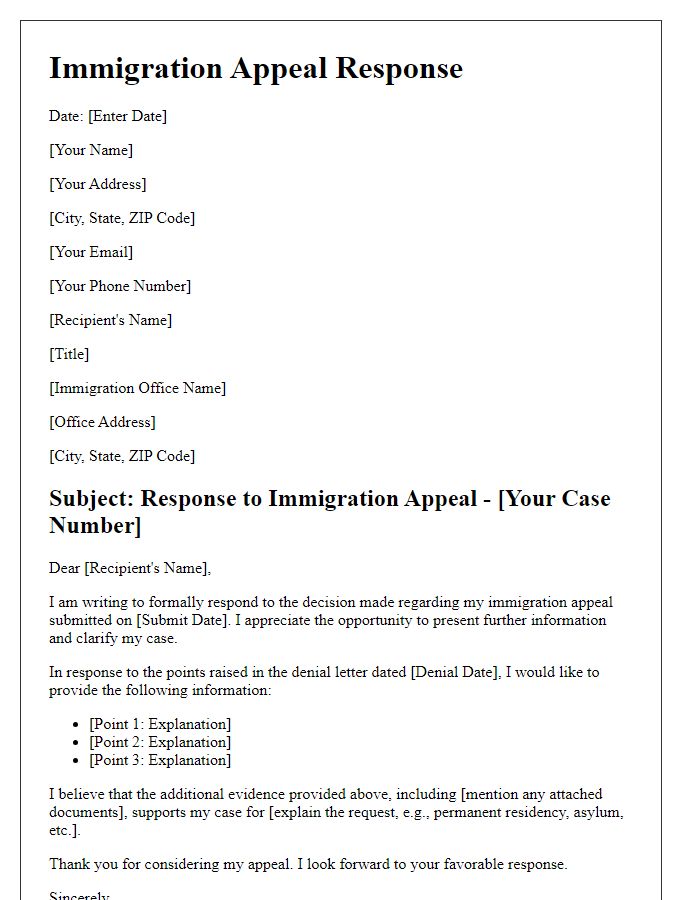
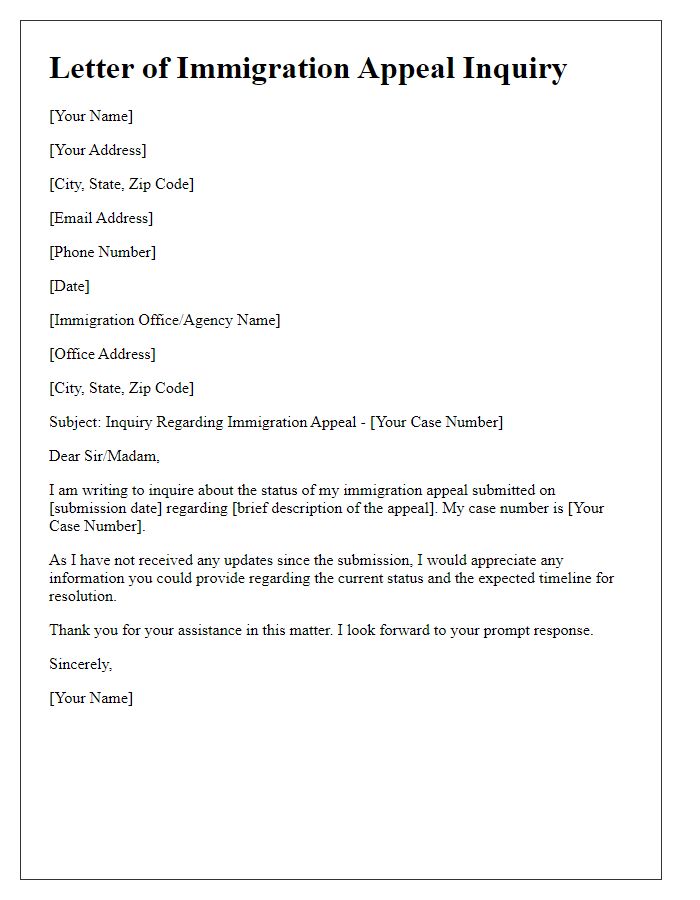
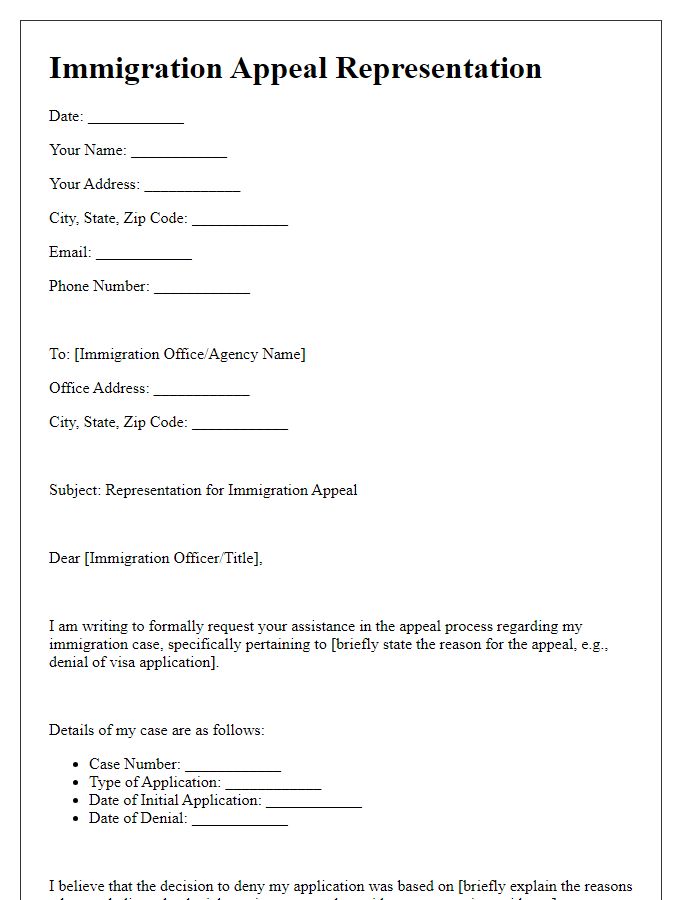


Comments